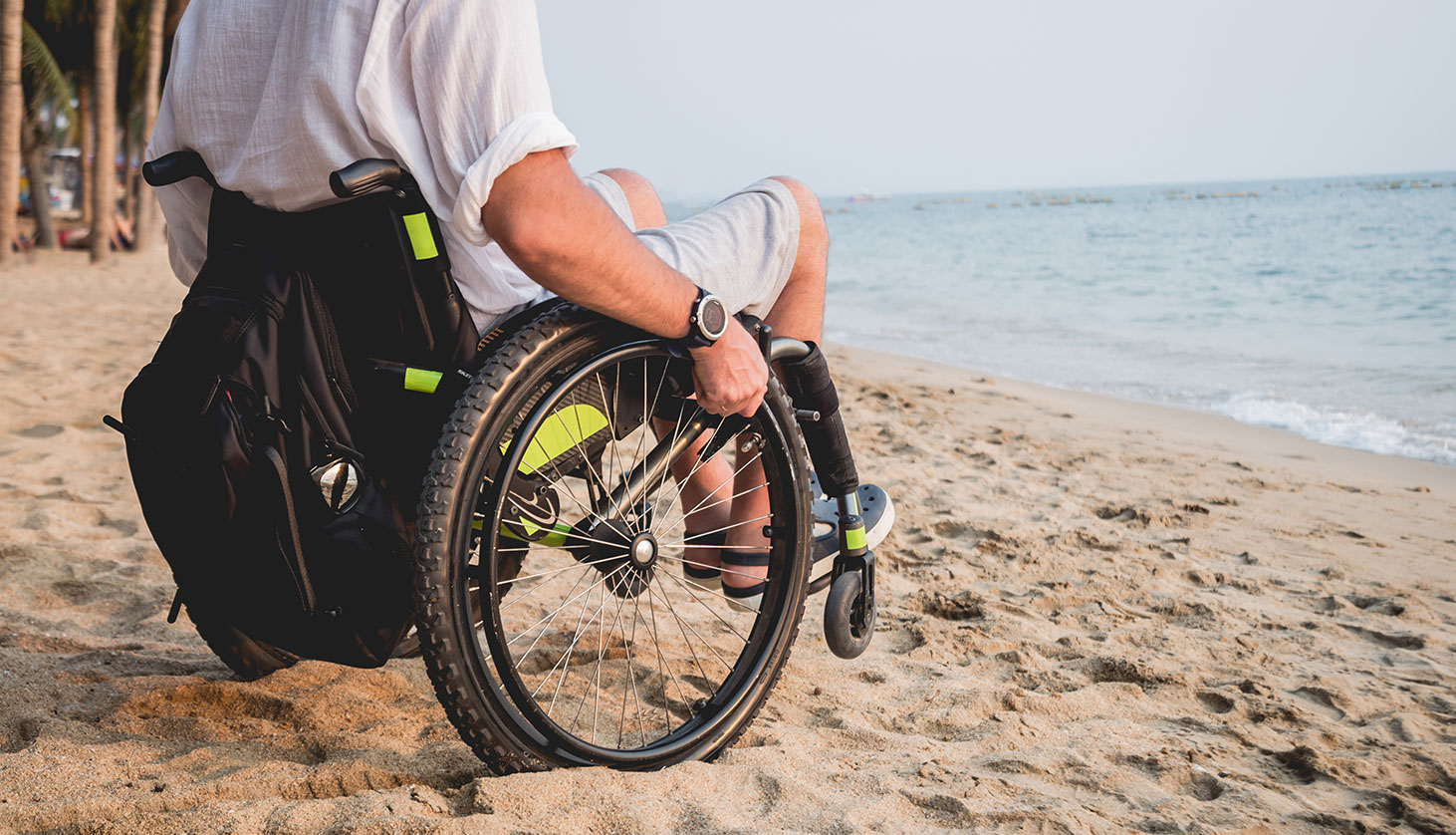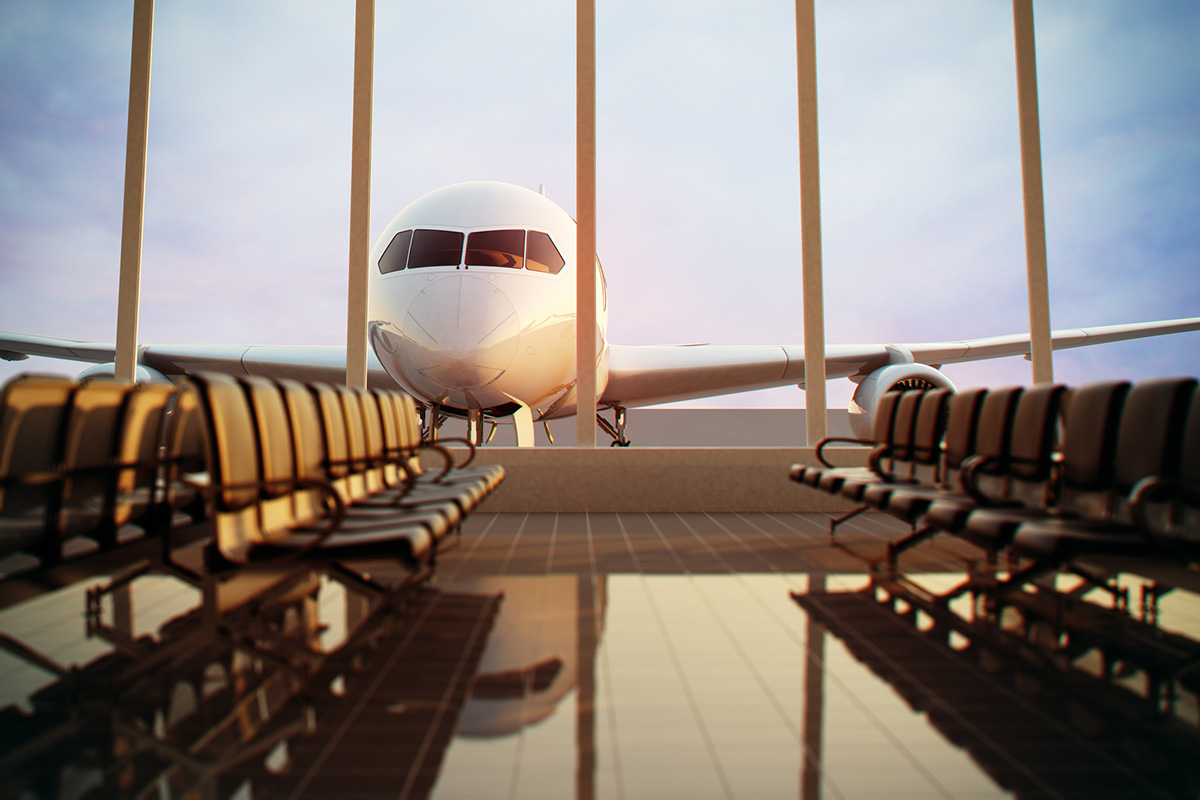Traveling is an industry that is everchanging. Whether it’s a pandemic like COVID and the aftermath or airport disruption, traveling has required a cautiousness to protect ourselves and our loved ones and flexibility to comply with constant travel restriction changes.
If you are planning to travel anytime in the near future, you need to give yourself enough time to plan in advance, especially if you have certain restrictions or needs that need to be met. You’ll need to research the best place that accommodates your needs and allows you to have the experiences that you want with travel restrictions and safety precautions in mind.
Below, we’re going to go through general tips for traveling for people with disabilities. Depending on your personal circumstances, you may need additional specifications and advice from travel and medical professionals.
Table of Contents
- Know Your Rights
- Before You Travel
- When You’re Traveling
- Travel Tips for Caregivers and Companions
- Additional Resources for Traveling with a Disability
Know Your Rights
You have a right to accommodations when traveling to different areas. Before you begin planning, get familiar with your rights so you know the requests and accommodations you’re entitled to under the law.
Countries have varying laws protecting the rights of people with disabilities. The United Nations lays out laws and acts in several countries. In the U.S., we have the Air Carrier Access Act (ACAA) and the Americans with Disabilities Act (ADA). We will briefly go over both below.
- ACAA: This act prohibits discrimination against people with disabilities in air travel. It also requires airlines and airports to provide accommodations, accessible facilities, and training for employees who deal with the traveling public.
- ADA: This act mandates the elimination of discrimination against individuals with disabilities by providing enforceable standards everyone must follow. For example, the ADA has standards for accessible design to make things like elevators, amusement park rides, and drinking fountains accessible for all.
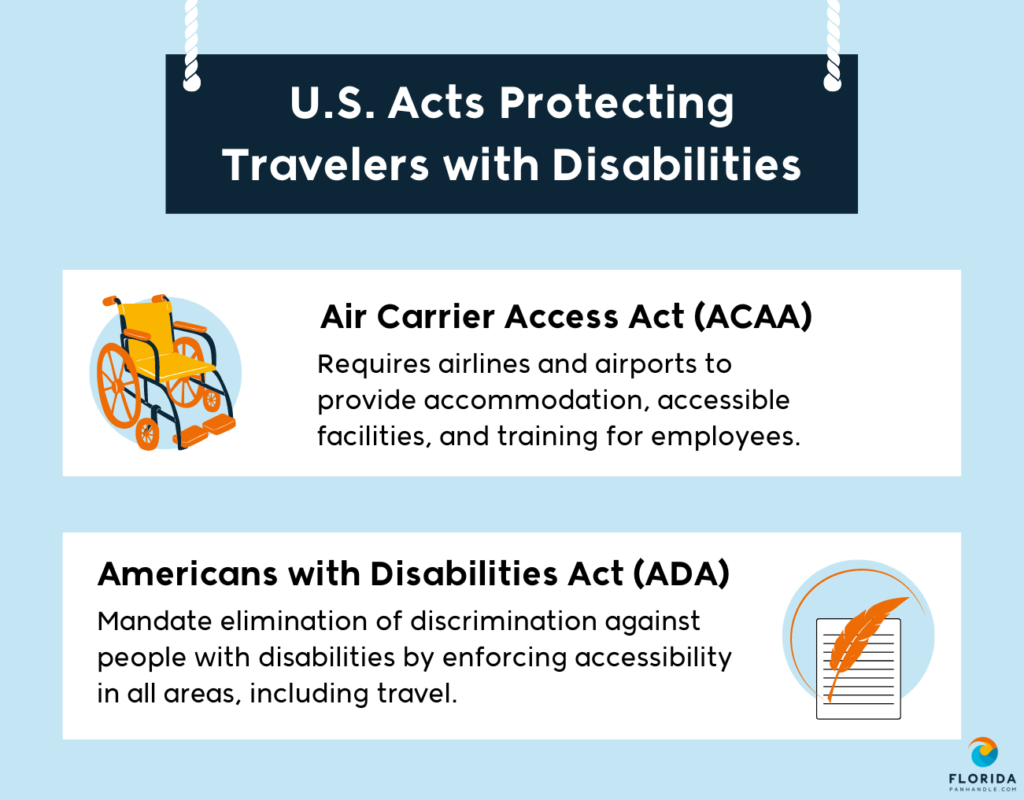
The ACAA also requires all airlines to have a specially-trained complaints resolution official (CRO) to respond to complaints. This individual is authorized to resolve complaints on behalf of the airline and must be available by phone or in person during operating hours. If you run into any issues, request to speak to the airline’s CRO.
You can also file a consumer complaint with the Department of Transportation (DOT). However, the DOT encourages travelers to give the airline a chance to resolve the issue first since they can typically take care of complaints right away.
What Are the Different Categories of Disabilities?
There are many different types of disabilities and categories of disabilities that are unique to each individual, but for generalized purposes, here are 4 main categories:
- Physical: Physical disabilities have the potential to affect someone’s mobility, limbs, or function. Some physical disabilities include (but are not limited to): those who have lost a limb, MS, Cancer, and any who have to use wheelchairs for a wide range of medical histories.
- Sensory: A sensory disability affects one or more of the senses. Some sensory disabilities include (but are not limited to): loss of sight, loss of hearing, loss of taste, loss of touch, or loss of smell.
- Intellectual: An intellectual disability affects cognitive functioning or neurodevelopmental skills. Some intellectual disabilities include (but are not limited to): ADHD, Autism, Down Syndrome, and Cerebral Palsy.
- Mental Illness: A psychiatric disability or a disability from mental illness describes mental and emotional impairments that affect daily life and major life activities. Some psychiatric disabilities include (but are not limited to): OCD, Depression, Anxiety Disorders, Eating Disorders, and Schizophrenia.
All and any of these disabilities can affect how you travel and where you go. While it might be helpful to use a travel agent for planning purposes, we’ve included the essential tips on traveling and top destinations per category so that you don’t have to do all the research on your own.
Before You Travel
Planning the details ahead of time can save you stress from last-minute planning. It also gives you a better idea of potential alternatives if certain lodging or locations don’t work out due to the pandemic or other reasons. These are a few things to consider when planning out your next trip.
Assess If You Should Travel
Although the United States has lifted any previous COVID restrictions that it had in the past couple of years, you should still first evaluate your own health before considering travel.
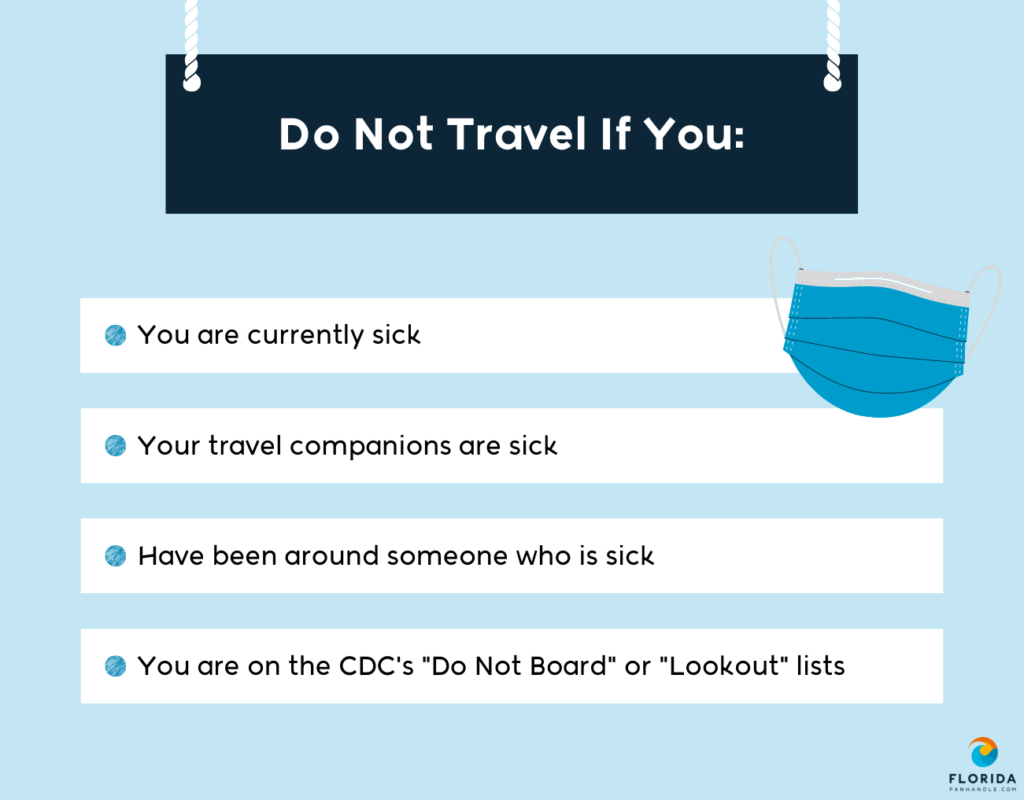
Even though restrictions are down, it’s still important to make sure that you feel well before you travel and aren’t carrying any sort of disease. Here are instances when you should not travel according to the CDC.
- You are currently sick.
- Your travel companions are sick.
- You are on the CDC’s “Do Not Board” or “Lookout” lists.
You should also consider delaying travel if you live with someone or you have a high risk of catching infectious diseases.
Decide If You Want to Use a Travel Agent
Travel agents may save you time by handling the full research and booking process. They can take care of small and large tasks like ensuring accessible accommodations and securing refund policies that align with your needs. If you need to cancel or reschedule a trip, you can also lean on your travel agent to take care of it.
The drawback to travel agents is the upfront costs. Agents also may not be the best option if you prefer to do research on accommodations yourself. Weigh the pros and cons to see if a travel agent is the best choice.
Contact Your Transportation Provider
Regardless if you’re traveling by plane, train, or bus, you should call ahead to ensure you have the necessary accommodations available to you. You should call ahead to both the airport or station where you’re departing and arriving to ensure a smooth trip from beginning to end. Below are a few things to ask about when you’re doing your research.
- Assistive devices like wheelchairs and oxygen
- Facilities accommodations like accessible bathrooms, lifts, and bulkhead seats
- Services like pre-boarding and baggage assistance
- Accessible communication systems like through a TTY or video remote interpreting (VRI)
Airlines in the U.S. cannot require advanced notice that a person with a disability is traveling unless you need an accommodation that requires prep time. Some examples are respirator hookups and transporting an electric wheelchair on an aircraft with less than 60 seats. The Transportation Security Administration (TSA) is also required to make electronic and information tech accessible to individuals with disabilities.
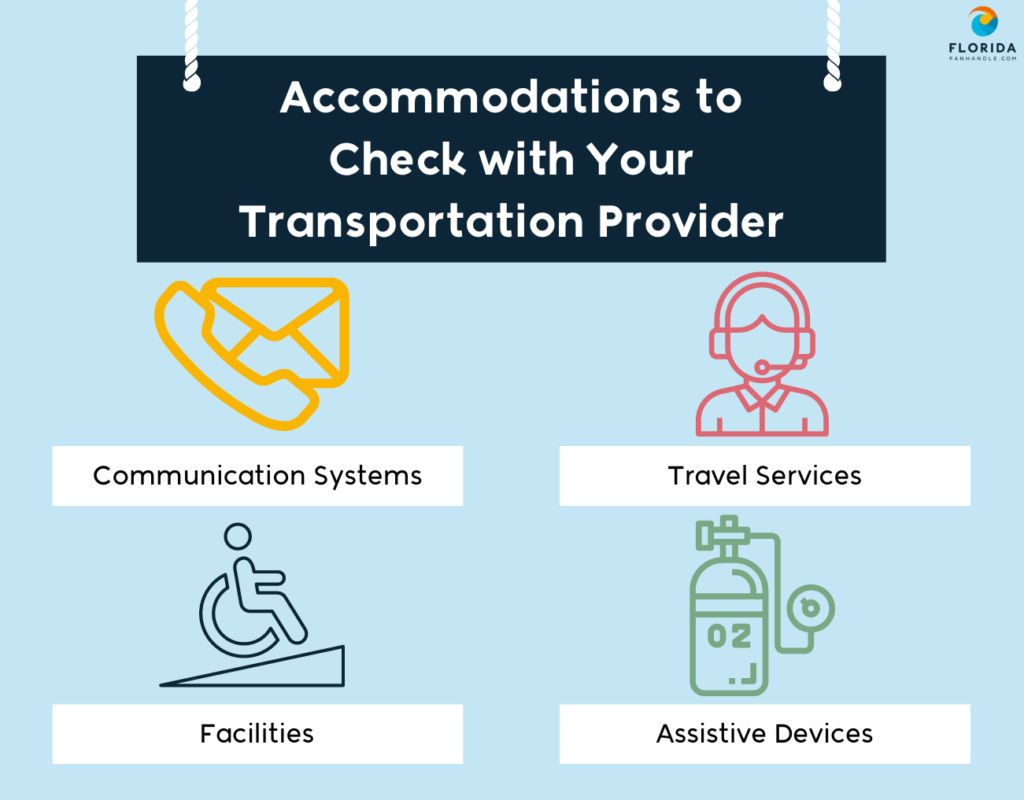
You can call the TSA 72 hours prior to your flight if you have questions about screening policies, procedures, and the security checkpoint. You can also go through their site to see information on security checkpoint accommodations. It’s helpful to also prepare a TSA notification card and other medical documentation to describe your condition. If you use assistive equipment, consider if it’s best to rent it in the area or to bring your own.
Finally, you also want to confirm what precautions the transportation provider is taking to keep passengers and staff safe. You should also check cancellation policies in case you need to cancel for any reason.
Where Are the Best Destinations for Your Disability?
We know that everyone is different and has their own unique preferences. Whether it’s friendly and knowledgeable staff or disability-friendly amenities, there are quite a few locations and destinations that will suit a variety of needs.
When it’s a specific location you want, there are 6 places around the world known for being extremely disability-friendly. DisneyWorld in Orlando, Florida is widely known for its wheelchair accessibility. Not only does it offer accessible rides and shows, but there are also plenty of accessible restrooms across the park as well as disability parking lots. On top of all of this, there is also the Disability Access Service feature that allows guests to return to an experience if they can’t tolerate those excruciatingly long lines. DisneyWorld has over 34,000 reviews on TripAdvisor and still stands tall at 4.5 stars, making it a top location on our list.
There are a couple of other theme parks that make the list as well, such as; Dollywood and Morgan’s Wonderland. Morgan’s Wonderland is a theme park in San Antonio, Texas that is described as “The World’s First Ultra-Accessible Theme Park.” This San Antonio theme park prides itself on the inclusion of all major disabilities, with free admission to any of those with a special need (this focuses heavily on intellectual, sensory, and physical disabilities). Dollywood is located in Pigeon Forge, TN, and not only has ride accessibility, but also a calming area for those that might have sensory overload while visiting.
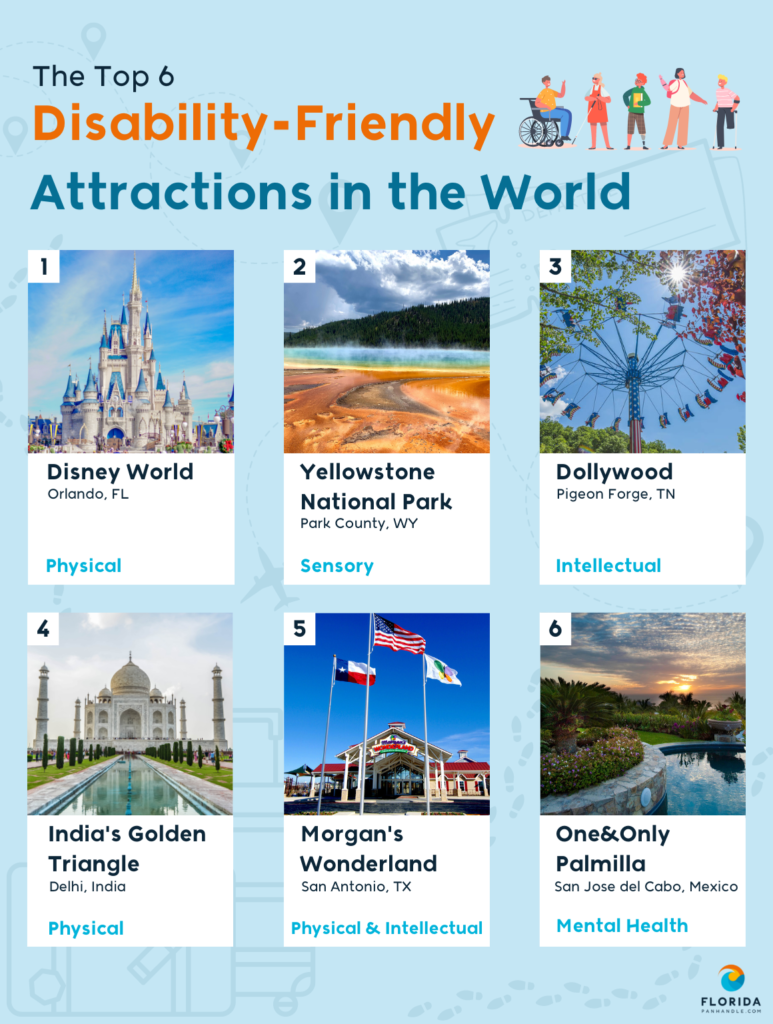
Yellowstone National Park is a worldwide beloved park for everyone, but it’s known to be great for those who may have sensory impairments. Those who have vision impairments are guided to use their other senses like listening to the echoes of the park or smelling nature. Those with hearing impairments are guided to use their other senses as well like looking at the beauty of the park or smelling distinct smells as well. Whatever your sensory disability may be, Yellowstone is known for its specific sights, sounds, and smells that are unlike anywhere else – making it the perfect place to heighten the senses that are not impaired.
When it comes to international locations, India’s Golden Triangle has several wheelchair-accessible tours that allow you to soak up some of India’s culture and history. Meanwhile, Mexico is home to One&Only Palmilla which is a resort that focuses on mental wellness, freeing your mind of anxiety, and connecting to your spiritual journey.
When it isn’t a specific location, but a general destination that you want, there are 5 other places to consider. For your mental health or psychiatric disability, Kyoto, Japan and Lanai, Hawaii are the top choices for a much-needed mental refresh. According to the American Psychological Association, there is a strong correlation between spending time outside and boosting our mental health. Kyoto and Lanai both have an extraordinary amount of activities to enjoy outside. While Kyoto has temples, shrines, and mountains, Lanai has its very own wellness retreat along with several pristine beaches away from any crowds.
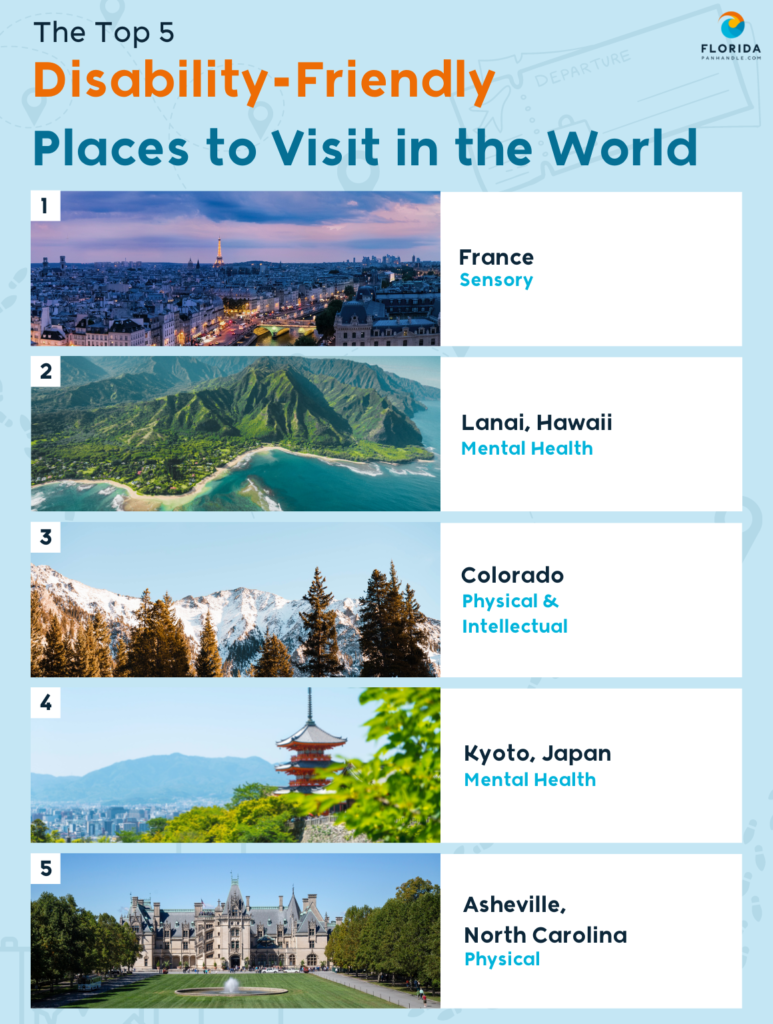
As far as physical disabilities go, Colorado and Asheville are known to be quite accommodating. Colorado has several handicap-accessible attractions like Echo Canyon River Expeditions or the Ghost Town Museum, while Asheville has large sidewalks and several accessible hiking trails. Colorado is also a friend to intellectual disabilities and was actually ranked by Autism Parenting as one of the most supportive states to parents raising their children with autism.
Finally, France is home to one of the first free schools for deaf people in the world – The Institut National de Jeunes Sourds de Paris. Because of that, along with various tours led by the hearing-impaired community, it is one of the best places to go if you are sensory impaired. If you are blind, there are several art exhibits where you can actually feel and touch the art like The Garden of the Rodin Museum or the Outdoor Sculpture Museum.
When it comes to the best destinations you should travel to with a disability, these are all highly recommended. Of course, we are not your doctor and you should always consult with them before you decide to travel.
Pandemic Impact
Each country and each U.S. state has been affected differently by COVID-19. Look up sites for your destination’s local government to learn about any continuous safety precautions they’re taking, and restrictions you may face if you travel there.
You also may need to look up your destination’s travel requirements. Some areas may still require any of the following:
- Quarantine upon arrival
- Negative COVID-19 tests before departure
- Post-arrival testing
The U.S. Department of State also provides entry requirement information for other countries. Since you can also face quarantine requirements if you’re traveling to another U.S. state, check your destination state’s requirements ahead of time.
The Department of State encourages travelers to enroll in the Smart Traveler Enrollment Program (STEP) so the U.S. embassy can inform you about safety conditions and emergencies. Enrolling in STEP makes it easier to have your loved ones get in touch with you in an emergency.
These requirements and restrictions can quickly change depending on the virus’s progression or new information. Review your requirements often to stay up-to-date on potential changes.
Regardless of where you’re traveling, you may want to pack food and water in case restaurants and stores close during your trip. You should also bring enough personal protective equipment (PPE) like face masks and hand sanitizer to last your trip.
Lodging
Keep a list of your accommodation needs nearby to help you determine if a hotel or vacation rental fits your requirements. Most information should be available on their site, but you can also call if anything is unclear or missing from their site. Pick lodging that best replicates your experience at home. For example, you can find a hotel that has roll-in showers if you use one at home.
In addition to the building’s amenities, you should also ask about the surrounding area’s accessibility. For example, you can ask if they have lighting near the roads, steep hills, and if they’re close to places you plan to visit.
Transportation
Public transportation may not be easily accessible in certain destinations. Walking may also not be ideal if you’re staying in an area that’s far from your other destinations. Ask your lodging provider about transportation options in the area. If walking or public transportation isn’t a great option, look into car rentals or private chauffeur options.
Service Animal
The ACAA permits individuals with disabilities to travel with service animals, but there are several guidelines you must follow. For example, your airline may require you to bring documentation to verify your condition and your service animal. These requirements can vary by the transportation provider.
The DOT outlines several guidelines to follow when bringing a service animal with you while traveling in the United States. The DOT recently released the final rule on traveling by air with service animals with several specific guidelines to follow. For example, the DOT no longer considers emotional support animals as service animals. Read up on these guidelines before you travel.
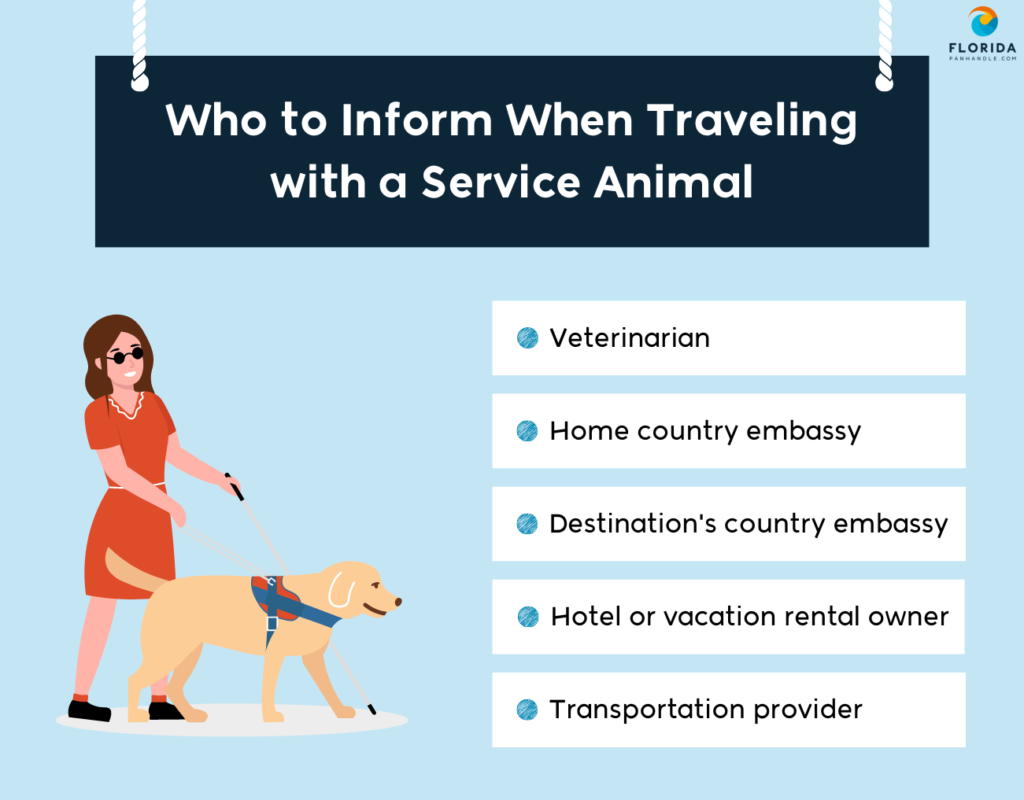
Transportation Laws
Countries have different laws on transporting animals. The Animal and Plant Health Inspection Service (APHIS) provides information on different laws and requirements for different countries. Your service animal may also need to follow CDC guidelines for bringing animals to the U.S. if you are traveling out of the country.
In addition to checking the country’s requirements, you should also contact a few other entities. The U.S. embassy in your destination country can also help you navigate local laws and customs for animals. A veterinarian can also give you tips for traveling with your service animal.
Lodging Laws
Lastly, you should inform your hotel or rental as well as your transportation provider to inform them of your service animal. There are federal and local laws that govern your rights to have service animals with you in hotels and rentals. For example, the ADA does not allow hotels to charge a cleaning fee or pet fee for the service animal. However, a hotel or host can charge a fee for damages caused by the service animal. Check your lodging facilities’ guidelines along with the laws in your destination regarding service animals.
Plan Your Activities
The way you spend your time is up to you. However, it may be easier to plan for days that mimic your time at home. For example, if you have more energy at night, then you may have more fun doing activities in the evening. Take other things like potential bad weather or construction at popular sites that may limit your options.
There are also many attractions and companies that provide discounts for people with disabilities. For example, Amtrak offers discounts for people with disabilities and up to one traveling companion. The National Park Service also offers discounts for U.S. citizens or permanent residents with permanent disabilities.
Consider taking your caregiver into account (if you have one) when planning your trip. They’ll likely appreciate an excursion that they’ll enjoy or some time to rest in between activities.
See What Your Insurance Covers
Emergencies happen and you may need medical care in another country. Check with your health insurance to see what scenarios are covered. You should also consider travel insurance that covers both travel-related expenses and health-related expenses. Research nearby medical facilities to get an idea of where you can go for help.
Medical evacuation insurance is something else to consider if you’re traveling to a remote or poor area and want to be transported to a high-quality hospital in an emergency. The Department of State has a list of recommended insurance providers to consider.
When You’re Traveling
The bulk of the work is done once you’re done researching and confirming your trip accommodations. However, you’ll typically run into a few difficulties while you’re making your way through the station or terminal. Here are some tips to get help while you’re traveling.
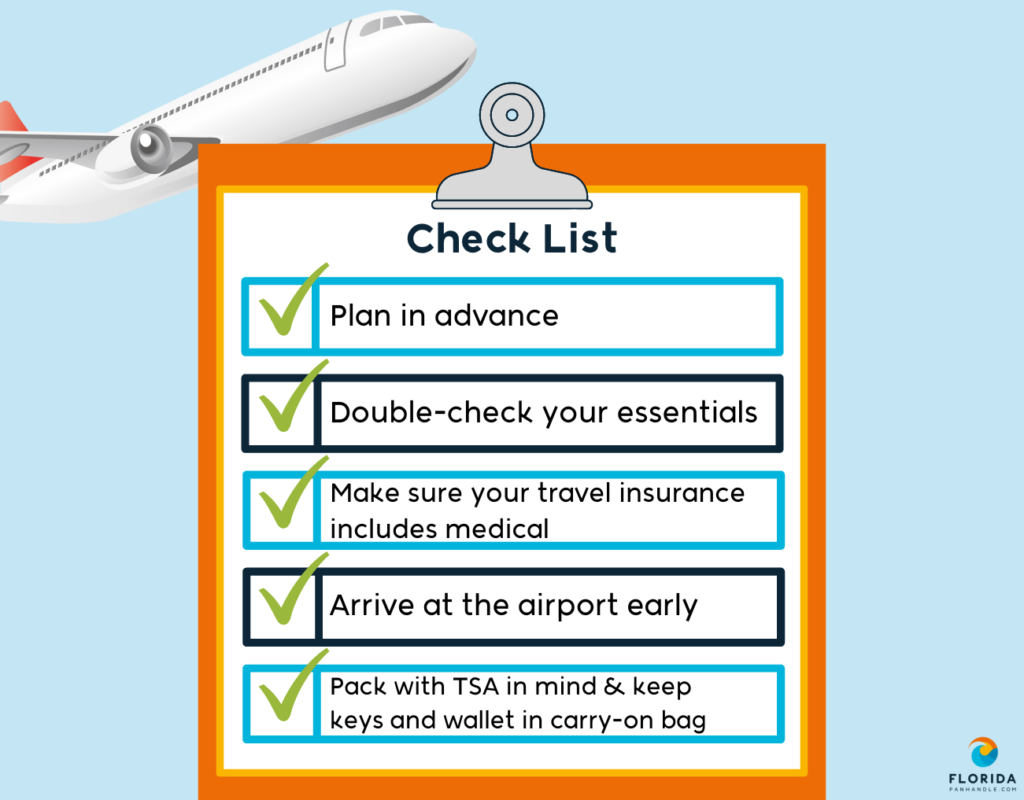
You’ll likely spend some time around others while you’re waiting in the security line, waiting for your flight, train, or bus to arrive, and while you’re traveling on the plane, train, or bus. Many transportation providers have sanitation processes in place now and social distancing guidelines in place to combat crowds, but you should also make an effort to keep your distance.
Double-Check Your Essentials
It never hurts to double and triple-check your luggage. Essentials like medication, boarding passes, assistive devices, and other things can cause big problems if they’re left behind. Keep essentials along with PPE easily accessible in your carry-on.
Arrive Early
With travel uprising again since the pandemic and airports gaining a little chaos, it’s especially important to arrive early to get through security, any additional checks, and transfers. Building in extra time to your schedule is crucial if you potentially run into issues. For example, an airline might not have your accommodations ready for you when you arrive, so this may add to your wait time.
When you arrive, alert the staff right away that you’re a person with a disability who needs accommodations so you can quickly get through security and boarding. You should also inform them if you prefer your companion or caregiver to assist you.
Separate Items That Need to Be Scanned
Going through security requires some contact with others. To minimize contact, keep things that need to be scanned like food and liquids separate from your carry-on bag to lessen the need to open and go through your bag. You should also put personal items like wallets and keys in carry-on bags instead of bins to limit the number of people touching them.
Travel Tips for Caregivers and Companions
Caregivers and companions have lots to do to make sure travelers have a comfortable and enjoyable stay on their trip. These are just a few things to consider when traveling with companions or caregivers.
- Solidify costs: Establish upfront if everyone is paying for themselves as well as who is in charge of managing costs for the trip. This is especially important if the caregiver is paid to accompany the traveler.
- Plan accommodations: Communicate what level of assistance is needed prior to the trip. This dictates whether a caregiver needs to stay in a shared or adjoining room or should stay in a separate room.
- Schedule your time: Travel plans should also take companions into account based on their limitations. Travelers and companions should know ahead of time if they’re spending the full trip together or if they will have some time spent apart.
Additional Resources for Traveling With a Disability
There are many other resources available for traveling with disabilities and traveling. Take a look at some of these sites below for more travel tips and information.
- Mobility International USA
- International Air Transport Association
- Society for Accessible Travel & Hospitality
- Transportation Security Administration
- World Health Organization
- The Americans With Disabilities Act
Remember to follow official guidelines when traveling to keep you and your loved ones safe, and to enjoy an overall good vacation! You should also stay on top of travel restrictions and accessibility accommodations to ensure that you have everything you need for your trip. Whether you’re taking a beach vacation or a city getaway, the most important things are to be safe and enjoy!
Sources: Center for Disease Control 1, 2, 3 | Department of Transportation | Department of State 1, 2 | Mayo Clinic
Disclaimer: FloridaPanhandle.com does not provide legal or medical advice. This post has been prepared for informational purposes only. All users are advised to check all applicable local, state, and federal laws and consult legal and medical counsel should questions arise.

